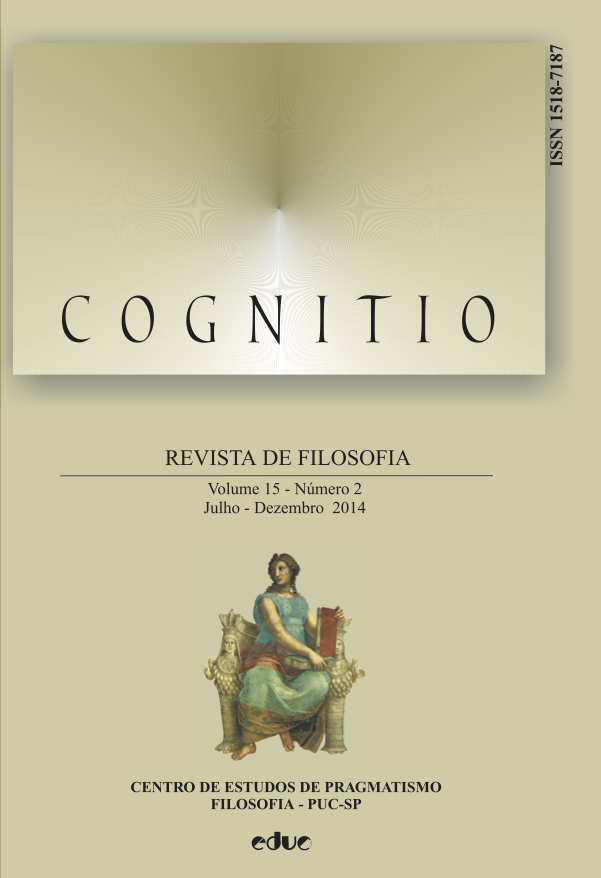John Dewey e democracia como ideal regulativo
Palavras-chave:
Anti-dogmatismo. Continuismo. Fé. Naturalismo humanístico. Democracia radical. Individualismo.Resumo
O contexto religioso do pensamento de John Dewey afeta fortemente sua concepção de democracia, o que, não obstante, assevera explicitamente sua independência de crenças sobrenaturais. A característica ‘quase-religiosa’ que ele atribui aos ideais religiosos é uma expressão peculiar do seu ‘humanismo naturalístico’, o que acentua a capacidade imaginativa e o conhecimento científico como instrumentos fundamentais para um melhor desenvolvimento das possibilidades humanas, além do individualismo e de qualquer forma de dogmatismo. A complexidade do pensamento de Dewey, de suas fontes de inspiração, assim como de suas questões mais originais, oferece sólidas razões para se contrastar o risco de um cientificismo incauto e, ao mesmo tempo, abre espaço para maiores reflexões sobre os problemas atuais das sociedades democráticas.Métricas
Carregando Métricas ...
Downloads
Publicado
2015-04-30
Como Citar
Calcaterra, R. M. (2015). John Dewey e democracia como ideal regulativo. Cognitio: Revista De Filosofia, 15(2), 275–288. Recuperado de https://revistas.pucsp.br/index.php/cognitiofilosofia/article/view/23074
Edição
Seção
Artigos Cognitio









